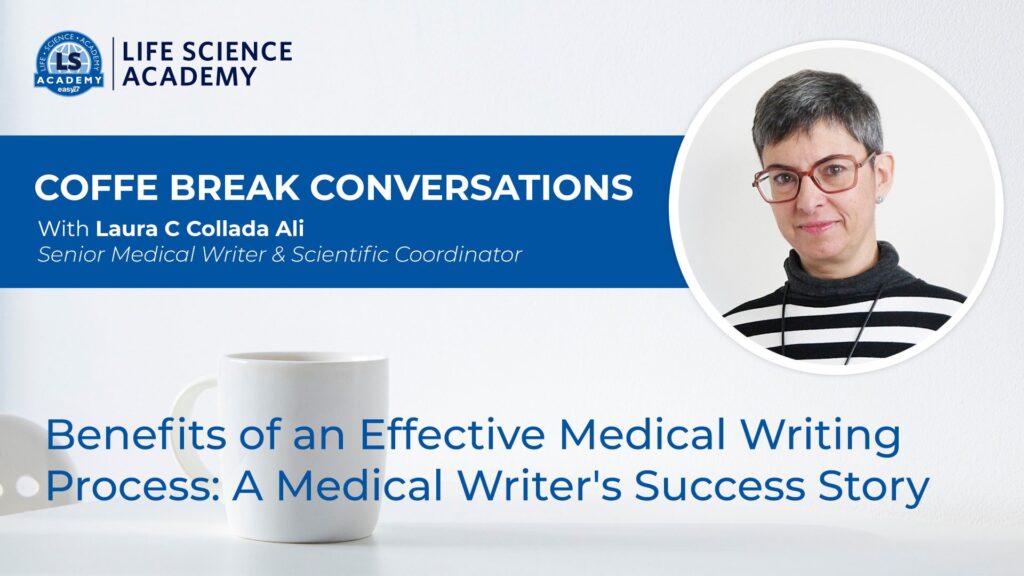
by Mara Claudia Algarotti – Training Manager & MW Operations
Working processes in medical writing are relevant because they help to improve efficiency, productivity and quality of work. Functional processes provide clear guidelines and procedures for completing tasks, which can help to reduce errors and mistakes. They also help to ensure that work is completed consistently and to a high standard, even when different people are involved.
We have discussed with our Senior Medical Writer & Scientific Coordinator (Laura C Collada Ali) why having a working process in place is so relevant for the success of a project.

«Good working processes can help identify and address issues quickly, saving business time and money. Overall, working processes are essential in ensuring work is completed effectively and efficiently.
With a strong foundation of project planning, collaboration, and quality control, medical writers can consistently produce high-quality documents that meet the rigorous standards of scientific publications, regulatory authorities, and healthcare professionals. By incorporating feedback loops and continuous improvement strategies, they can refine their processes over time, ultimately becoming more adept at communicating complex medical information effectively.»
What steps does a typical medical writing process involve?
«The medical writing process typically involves the following steps:
- Research and Planning consists of conducting extensive research on the topic, collecting and reviewing relevant literature, and planning the structure and content of the document, including kick-off meetings and outlining the key messages.
- Writing the Draft based on the research and planning step. This includes clearly stating the purpose and objectives of the document and having all the necessary information.
- Review and Edit. Once the draft is completed, it must be reviewed and edited to ensure accuracy, completeness, and clarity. The review and editing process may involve multiple rounds of revisions.
- Formatting and Layout. The document needs to be correctly formatted and laid out, with headings, subheadings, tables, and figures included as required.
- Final Review. After formatting and layout, the last review is conducted to ensure that all of the document’s requirements are met and ready for submission.
Of course, the flow of work for medical writing may vary depending on the type of document, target audience, and the organisation’s standard operating procedures. However, it typically involves collaboration and communication between the medical writer, subject matter experts, reviewers, and project managers. Effective communication, attention to detail, and a thorough understanding of medical terminology and concepts are crucial to the success of the medical writing process.»
What are the advantages?
«There are multiple advantages to enhancing the deliverable through a well-executed working process.
An excellent working process creates a culture of efficiency, quality, and collaboration, leading to better outputs and happier clients. It also makes us, medical writers, comfortable, as good processes facilitate everyone’s tasks. »
What advice would you give anyone working with a medical writer?
«If you’re working with a medical writer:
- Plan a kick-off meeting or call to discuss the project and set up the basis of excellent and clear communication.
- Allow him or her to ask as many questions as needed. Be wary of a medical writer who does not ask any questions…
- Ensure the medical writer has access to subject matter expertise and relevant reference materials.
- Give feedback on any output in due time, as this allows the medical writer to progress on the project quickly.
In conclusion, in a rapidly evolving healthcare landscape, where the demand for precise, accurate, and timely medical communication is more significant than ever, implementing working processes is not just an option but a necessity. The potential impact on patient care, public health, and scientific advancement cannot be understated.»
